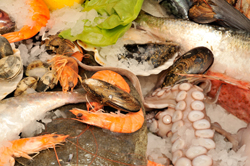Seafood and technology make a great pair
By pairing up small companies with research institutes and helping them to obtain funding, the ERMES project sought to give the Mediterranean seafood industry a much-needed injection of technology. Technology is an important element that could strengthen the position of smaller players in the global market since it impacts quality control, safety, environmental protection and many other critical aspects. The 'European research for Mediterranean seafood' (ERMES) project aimed to identify related technology needs and to provide access to needed resources. Over 100 small and medium-sized enterprises (SMEs) participated in special workshops and one-on-one meetings organised by the ERMES consortium. The outcome was a list of research priorities differentiated between seafood producers and processing companies ranging in activities from genetics to packaging to logistics. In parallel, research centres with expertise in these fields were mapped throughout the Mediterranean, including Turkey and Tunisia. ERMES partners then teamed up with another EU-funded project targeting the same industries in South America to put the maps on the http://www.eurlatseaproject.eu(opens in new window) website. The final phase involved bringing together SMEs and research centres with common interests and assisting them in securing funding. Information concerning national as well as European schemes, such as the EU Framework Programmes, was provided. A major outcome has been the submission of more than 30 research proposals aiming to improve the industry through technology transfer.



